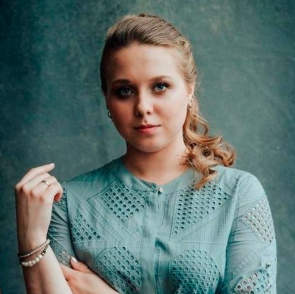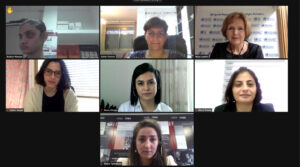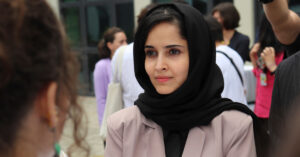В мае и июле 2021 года я встретилась с двумя группами правозащитников и правозащитниц из Кыргызстана: Айнурой Осмоналиевой, Мохирой Суяркуловой, Надирой Масиумовой, Бектуром Искендером, Алтынай Исаевой, Эркиной Убышевой, Укей Мураталиевой, Камилем Рузиевым и еще двумя, чьи имена не могут быть раскрыты из соображений безопасности. Я услышала об их работе по защите прав таких групп как женщины, дети, ЛГБТК люди, люди с инвалидностью, этнические меньшинства, беженцы, лица без гражданства, внутренние мигранты, секс-работники и работницы, а также о защите свободы слова и мирных собраний, свободы от пыток, расследованиях коррупции и организованной преступности и использовании стратегических судебных процессов для защиты прав человека.
Они прямо сказали мне, что, несмотря на редкость длительных задержаний правозащитников, это остается проблемой в стране; Азимжан Аскаров умер во время отбывания длительного срока заключения чуть более года назад, и его дело служит напоминанием о постоянном риске для правозащитников.
Участники выразили обеспокоенность растущим уровнем враждебности в стране по отношению к гражданскому обществу и правозащитникам, особенно тем, кто работает с наиболее уязвимыми группами населения. Мне рассказали, что, как и в других странах региона, многие неправительственные организации (НПО) все чаще воспринимаются властями с подозрением; иногда их позиции по правам человека называют “западными” и вредящими “духовной целостности” нации. Это сопровождается все более активными попытками сократить доступ к иностранному финансированию и ввести обременительные требования к отчетности.
Защитники и защитницы прав человека, подвергающиеся нападкам за свою правомерную работу, рассказали о том, как они сталкиваются с ответной реакцией со стороны местной полиции и крайне правых групп. Онлайн и офлайн угрозы, включая угрозы смерти, физическое насилие и вандализм являются обычной реакцией на правозащитные кампании, проводимые гражданским обществом Кыргызстана. Многие правозащитники говорили о личном опыте выгорания и незащищенности их работы.
Некоторые из правозащитниц рассказали о том, как их преследуют через их семьи. Братьев, мужей и отцов убеждают оказать давление на правозащитниц, чтобы они прекратили свою работу. Защитникам и защитницам прав ЛГБТК людей и секс-работников и работниц говорят, что трудно сотрудничать с правительством по вопросам прав человека, потому что это “социально неодобряемая группа”. Как и во всем мире, радикальные правые группы, совершающие насилие против женщин и групп, представляющих меньшинство, чувствуют себя узаконенными благодаря враждебной риторике правительства.
Кыргызстанские правозащитники и правозащитницы заняли уверенное место в глобальной борьбе за права человека и успешно нашли способы продолжать свою работу несмотря на многочисленные трудности. Они одержали несколько крупных побед, в частности, предотвратили прохождение через парламент некоторых ограничительных или дискриминационных законопроектов. Я с нетерпением жду возможности вместе с ними работать над этими вопросами в будущем.
Meetings with Human Rights Defenders in Kyrgyzstan
In May and July 2021, I met with two groups of Human Rights Defenders (HRDs) from Kyrgyzstan: Ainura Osmonalieva, Mohira Suyarkulova, Nadira Masiumova, Bektour Iskender, Altynai Isaeva, Erkina Ubysheva, Ukei Muratalieva, Kamil Ruziev and two other HRDs whose names cannot be disclosed for safety reasons. I heard about their work in defence of the rights of groups including women, children, LGBTQ people, people with disabilities, ethnic minorities, refugees, stateless people, migrants, sex workers, as well as about defending the freedom of expression and peaceful assembly, freedom from torture, investigations of corruption and organised crime, and using strategic litigation to protect human rights.
Starkly, they told me how, despite long-term detentions of Human Rights Defenders being rare, it remained a problem in the country; Azimjan Askarov died while serving a long term sentence just over a year ago, and his case is a reminder of that constant risk for Human Rights Defenders.
The participants raised concerns about a growing level of hostility in the country towards civil society and Human Rights Defenders, especially those working on the most vulnerable groups. I was told how, similar to other countries in the region, many non-governmental organisations (NGOs) are more and more being viewed with suspicion by authorities; sometimes their stances on human rights are labelled as “Western” and harming the “spiritual integrity” of the nation. This is accompanied by ever-increasing attempts to reduce access to foreign funding and introduce burdensome reporting requirements.
Scapegoated for their legitimate work, the Human Rights Defenders spoke about how they face backlash from local police and right-wing groups. Online and offline threats, including death threats, physical violence, and vandalism are common reactions to human rights campaigns lead by Kyrgyzstan’s civil society. Many of the defenders spoke of personal experiences with burnout and job insecurity.
Some of the Women Human Rights Defenders spoke of how they are targeted through their families. Brothers, husbands and fathers are convinced to pressure WHRDs to stop carrying out their work. As “socially discouraged groups”, LGBTQ and sex worker defenders say that they find it difficult to cooperate with the Government on human rights issues. As is the case globally, radical right-wing groups who commit violence against women and minority groups feel legitimised by hostile government rhetoric.
The defenders in Kyrgyzstan placed themselves firmly in the globalised human rights struggle and have successfully found ways to continue carrying out their work despite the many challenges. They have had some big wins, particularly preventing some restrictive or discriminatory bills from passing through the parliament. I look forward to working on these issues with them in the future.



